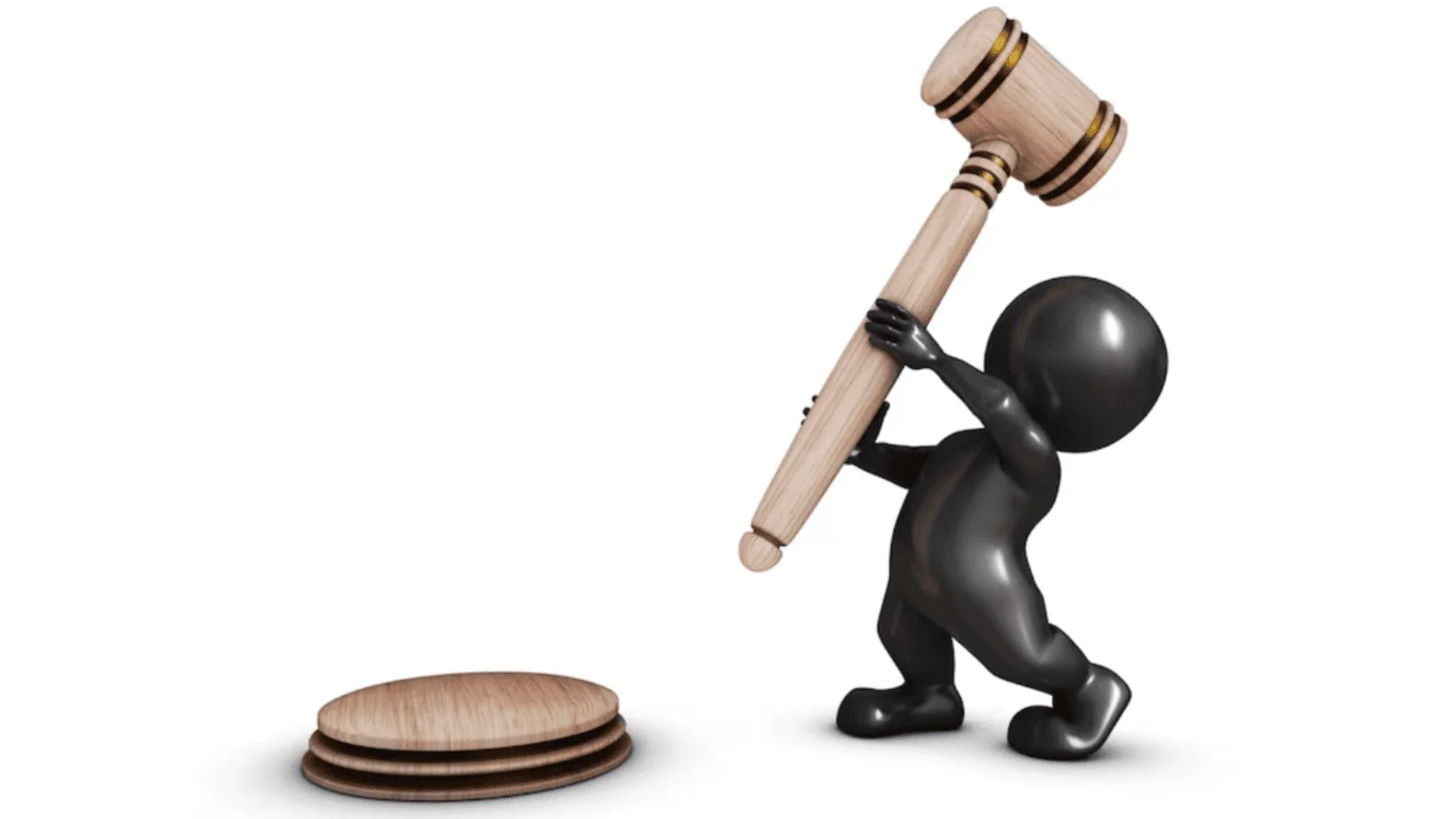In today’s fast-paced world, relationships can sometimes take unexpected turns, leading couples to consider the difficult and emotionally charged process of divorce. When facing such a situation, one of the most crucial decisions to make is hiring a skilled and experienced divorce attorney. This article will guide you through the importance of a divorce attorney and the role they play in helping individuals navigate the complex legal aspects of divorce.
Understanding the Basics
What is a Divorce Attorney?
A divorce attorney is a legal professional who specializes in family law and handles cases related to divorce, separation, child custody, and spousal support. They provide essential legal guidance and representation during the divorce proceedings.
Why Do You Need a Divorce Attorney?
1. Legal Expertise: A divorce attorney possesses in-depth knowledge of divorce laws and procedures, ensuring your case is handled with precision.
2. Objective Advice: They offer unbiased advice to help you make informed decisions during an emotionally charged time.
3. Negotiation Skills: A divorce attorney is skilled in negotiation, striving to achieve the best possible outcome for their client.
4. Paperwork and Documentation: They manage all legal paperwork and documentation, reducing the burden on you.
The Role of a Divorce Attorney
Initial Consultation
Your journey with a divorce attorney typically begins with an initial consultation. During this meeting, you will discuss the details of your case, including assets, debts, and child-related matters. This information helps the attorney understand your unique situation and develop a strategy tailored to your needs.
Legal Representation
One of the primary roles of a divorce attorney is to represent you in court. They will advocate for your rights and interests, ensuring a fair settlement or court judgment. This includes addressing issues such as property division, alimony, and child custody.
Mediation and Settlement
In the complex world of divorce proceedings, mediation and settlement play a pivotal role in resolving disputes amicably and efficiently. Let’s explore the significance of mediation and settlement in the context of divorce.
What is Mediation?
Mediation is a voluntary and non-adversarial process where divorcing couples, along with their respective attorneys, work with a neutral third-party mediator to negotiate and reach mutually agreeable solutions to various divorce-related issues. These issues can include property division, child custody, spousal support, and more.
Benefits of Mediation
1. Reduced Conflict: Mediation encourages open communication and cooperation, minimizing hostility and conflict between divorcing parties.
2. Cost-Effective: It can be a more cost-effective option than going to court, as it often requires fewer billable hours for attorneys.
3. Faster Resolution: Mediation typically leads to faster resolutions compared to lengthy court battles.
4. Customized Solutions: Mediation allows couples to craft personalized agreements that suit their unique circumstances and preferences.
The Mediation Process
1. Initial Meeting: The process begins with an initial meeting where all parties, including the mediator and both spouses, come together to discuss the objectives and guidelines for mediation.
2. Information Gathering: Each spouse provides information about their financial situation, assets, and liabilities to ensure transparency.
3. Negotiation: The mediator facilitates negotiations, helping both parties explore options, consider alternatives, and reach compromises.
4. Drafting Agreements: Once an agreement is reached, the mediator assists in drafting legally binding documents that outline the terms of the settlement.
What is Settlement in Divorce?
A settlement in divorce refers to the agreed-upon terms and conditions between the divorcing parties, which address issues like asset division, alimony, child custody, and child support. Settlements can be reached through mediation or negotiation between attorneys and can be presented to the court for approval.
Benefits of Settlement
1. Control: Parties have more control over the outcome and can tailor the settlement to their specific needs.
2. Privacy: Settlements are typically private and confidential, unlike court proceedings, which are often a matter of public record.
3. Emotional Well-being: Reducing the adversarial nature of divorce through settlement can help preserve emotional well-being for both parties and any children involved.
Approving Settlement Agreements
Once a settlement agreement is reached, it must be reviewed and approved by a family court judge. If the terms are deemed fair and in the best interests of any children involved, the court will issue a final divorce decree, making the settlement legally binding.
Child Custody and Support
One of the most sensitive and critical aspects of divorce proceedings revolves around child custody and support arrangements. When a marriage dissolves, it’s essential to prioritize the well-being and best interests of the children involved. Here, we delve into the intricacies of child custody and support.
Types of Child Custody

1. Physical Custody: Physical custody determines where the child will reside primarily. In cases of joint physical custody, children split their time between both parents’ homes, promoting a sense of stability.
2. Legal Custody: Legal custody refers to the authority to make important decisions regarding the child’s life, including education, healthcare, and religion. It can be awarded jointly or solely to one parent.
3. Sole Custody: In situations where one parent is granted sole custody, they have both physical and legal custody, and the non-custodial parent may have visitation rights.
Factors Considered in Child Custody Decisions
Courts prioritize the best interests of the child when making custody determinations. Factors often considered include:
– Child’s Age and Needs: Younger children may benefit from more stability, while older children’s preferences may be taken into account.
– Parenting Abilities: Courts assess each parent’s ability to provide a safe and nurturing environment for the child.
– Continuity of Relationships: Maintaining existing relationships with extended family members and friends may be considered.
– Emotional and Physical Health: The physical and emotional health of each parent is a crucial factor.
Child Support
Child support is a financial obligation that ensures the child’s basic needs are met, even if they primarily reside with one parent. The amount of child support is typically determined by:
– Income of Both Parents: The income of both parents is considered to calculate the child support amount.
– Child’s Needs: The child’s needs, including education, healthcare, and extracurricular activities, are factored into the equation.
– Custody Arrangement: The amount of time the child spends with each parent can influence the child support amount.
Modification of Child Custody and Support
Circumstances may change after the initial custody and support agreements are made. If one parent’s situation significantly changes, they can request a modification of the arrangements. This may include changes in income, relocation, or the child’s changing needs.
Co-Parenting
In many cases, divorced parents aim to maintain a cooperative co-parenting relationship for the sake of their child’s well-being. Effective communication, flexibility, and mutual respect are key components of successful co-parenting.
Navigating child custody and support matters during divorce can be emotionally challenging, but putting the child’s best interests first is paramount. A skilled divorce attorney can help you understand the legal aspects of child custody and support, ensuring that your child’s welfare remains a top priority.
Asset Division
Divorce often involves the division of assets and debts acquired during the marriage. A divorce attorney will help you navigate this complex process, ensuring a fair distribution of property.
Benefits of Hiring a Divorce Attorney
1. Legal Protection: A divorce attorney ensures your rights are protected and helps you avoid potential legal pitfalls.
2. Emotional Support: They offer emotional support during a challenging time, allowing you to focus on healing and moving forward.
3. Efficiency: With their expertise, divorce attorneys expedite the legal process, minimizing delays and complications.
4. Fair Settlement: They work diligently to secure a fair settlement that meets your needs and expectations.
Conclusion
Navigating a divorce can be emotionally and legally challenging, but with the assistance of a skilled divorce attorney, you can find the support and guidance you need to transition to the next chapter of your life. Their expertise, legal knowledge, and dedication to your case will ensure that you receive the best possible outcome during this difficult time.
Mediation and settlement offer divorcing couples an opportunity to resolve disputes in a less adversarial, more collaborative manner. By opting for mediation and crafting a mutually acceptable settlement, individuals can navigate the emotional and legal complexities of divorce more peacefully and efficiently, ultimately paving the way for a smoother transition to the next chapter of their lives.
Frequently Asked Questions
1. How long does the divorce process typically take?
The duration of a divorce varies based on individual circumstances but can range from a few months to a year or more.
2. What factors influence child custody decisions?
Child custody decisions are influenced by factors such as the child’s best interests, each parent’s ability to provide a stable environment, and the child’s preferences (depending on their age).
3. Can I change my divorce attorney if I’m not satisfied with their services?
Yes, you have the right to change your divorce attorney if you are not satisfied. However, it’s important to carefully consider your decision and consult with a new attorney before making the switch.
4. How can I prepare for an initial consultation with a divorce attorney?
To prepare for an initial consultation, gather all relevant documents, including financial records, and be prepared to discuss your goals and concerns openly.
5. What should I do to protect my assets during a divorce?
To protect your assets, it’s essential to work closely with your divorce attorney and provide accurate financial information. They will help ensure a fair division of assets according to the law.
In the challenging journey of divorce, a divorce attorney serves as your guiding light, helping you make informed decisions and secure your future. Don’t hesitate to seek their expertise when facing the complexities of divorce proceedings.






